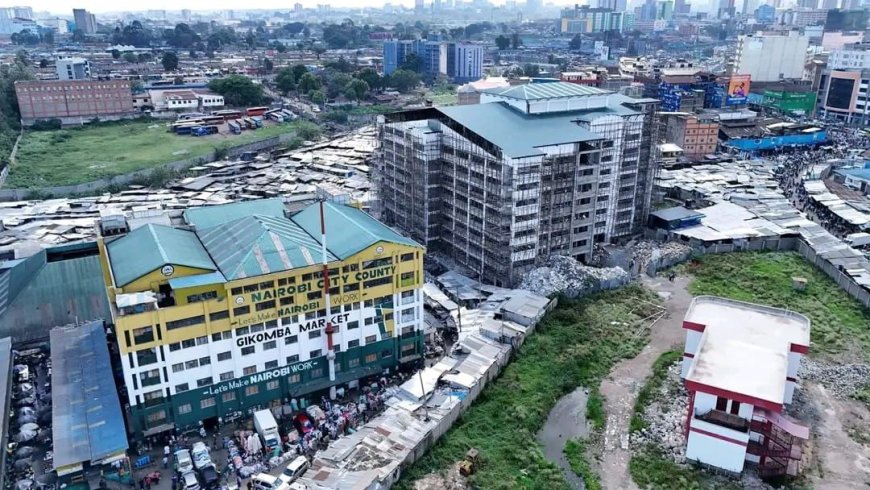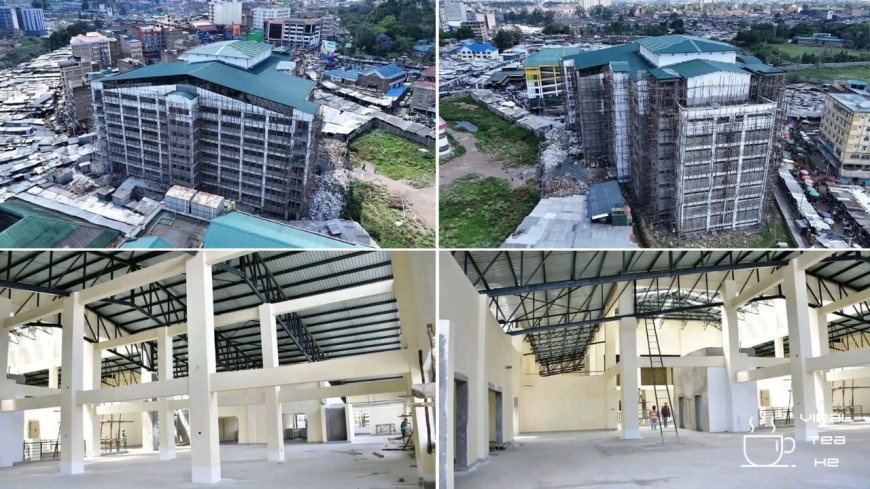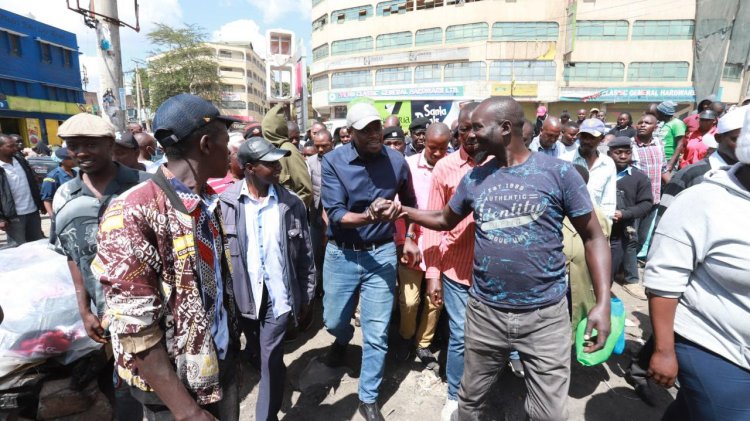Nairobi County To Relocate Over 1,700 Traders To New 7-Storey Gikomba Market
Beyond Gikomba, similar market upgrades are underway across the city

For years, Gikomba Market has been a symbol of both resilience and tragedy — repeatedly gutted by infernos that wiped out livelihoods and lives.
From the deadly 2014 blaze that killed 15 people to the 2021 fire that razed over 900 stalls, generations of traders have rebuilt from ashes time and again.
Now, that painful legacy is set to end. Nairobi Governor Johnson Sakaja has announced that the new seven-storey Gikomba Quarry Road Market Block D, currently in its final construction phase, will soon open its doors — marking a historic turning point for thousands of small-scale traders.

A look at the new seven-storey Gikomba Market, set to host over 1,700 traders, part of a comprehensive plan to end the rampant fires that have struck the market for decades. /JOHNSON SAKAJA
The state-of-the-art facility will accommodate over 1,700 traders in secure, organized spaces. It features a basement parking lot, day-care centre, youth centre, cold room, and hardware section — designed to bring order, safety, and dignity back to Nairobi’s largest open-air market.
“For years, Gikomba has been a place of pain for many families who’ve lost everything to fires. We made a commitment to end that cycle of loss. What we’re building here is not just a market — it’s hope, order, and dignity for our traders,” said Sakaja as captured in a statement on Thursday, November 5.
He noted that the Gikomba redevelopment is part of a broader countywide plan to modernize Nairobi’s markets, giving small-scale traders safer, cleaner, and better-managed spaces to operate from.
“Our traders deserve decent spaces to do business. When we empower them, we empower the heart of Nairobi’s economy,” Sakaja emphasized.
The project has already created hundreds of local construction jobs and is expected to inject new life into the city’s informal economy once operational.
Beyond Gikomba, similar market upgrades are underway across the city — including the nearly completed Mutuini Market in Dagoretti South, which will house over 500 traders.
The new facility comes equipped with modern amenities such as cold rooms, butcheries, proper drainage, and enhanced lighting to improve safety and hygiene.
“We’re moving from chaos to structure — from makeshift stalls to modern spaces. Every trader in Nairobi deserves to work with dignity, and that’s exactly what we’re delivering,” Sakaja reiterated.
However, it remains unclear whether the traders were consulted in the ongoing relocation plans that have recently sparked tensions with City Hall.
Gikomba, one of Nairobi’s largest markets, primarily trades in non-food items, including clothing, household goods, and hardware materials.
The modern market, built in collaboration with the national government, symbolizes a new era for Nairobi’s informal traders — one defined by safety, stability, and pride in their work.
Other ongoing market projects in Karen, Kahawa West, and various sub-counties are part of Sakaja’s wider push to transform local economies and restore dignity to thousands of hardworking Nairobians who keep the city running.
As the final touches go up on the Gikomba structure, optimism is high — this time, not from the ashes, but from the promise of a safer, brighter future.







